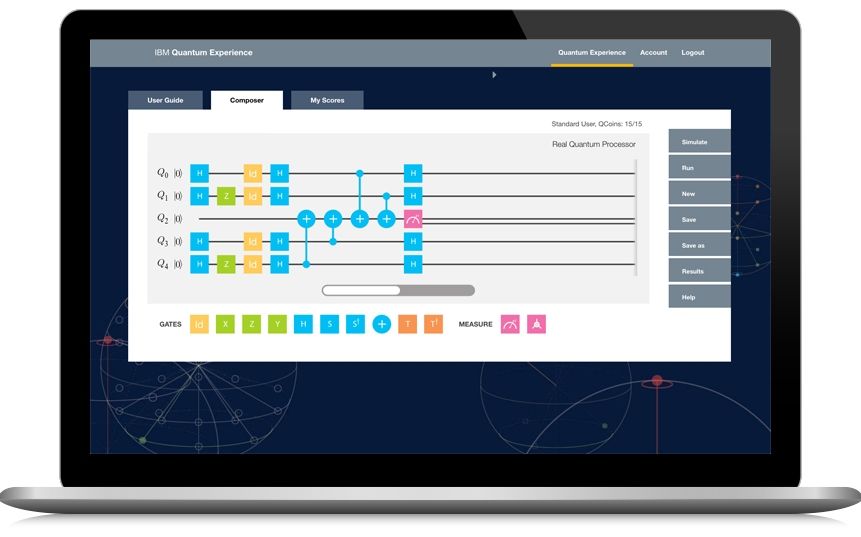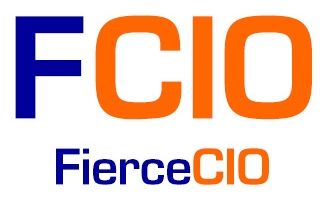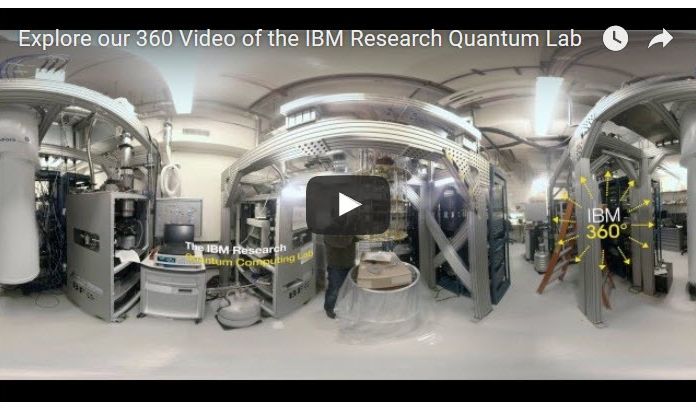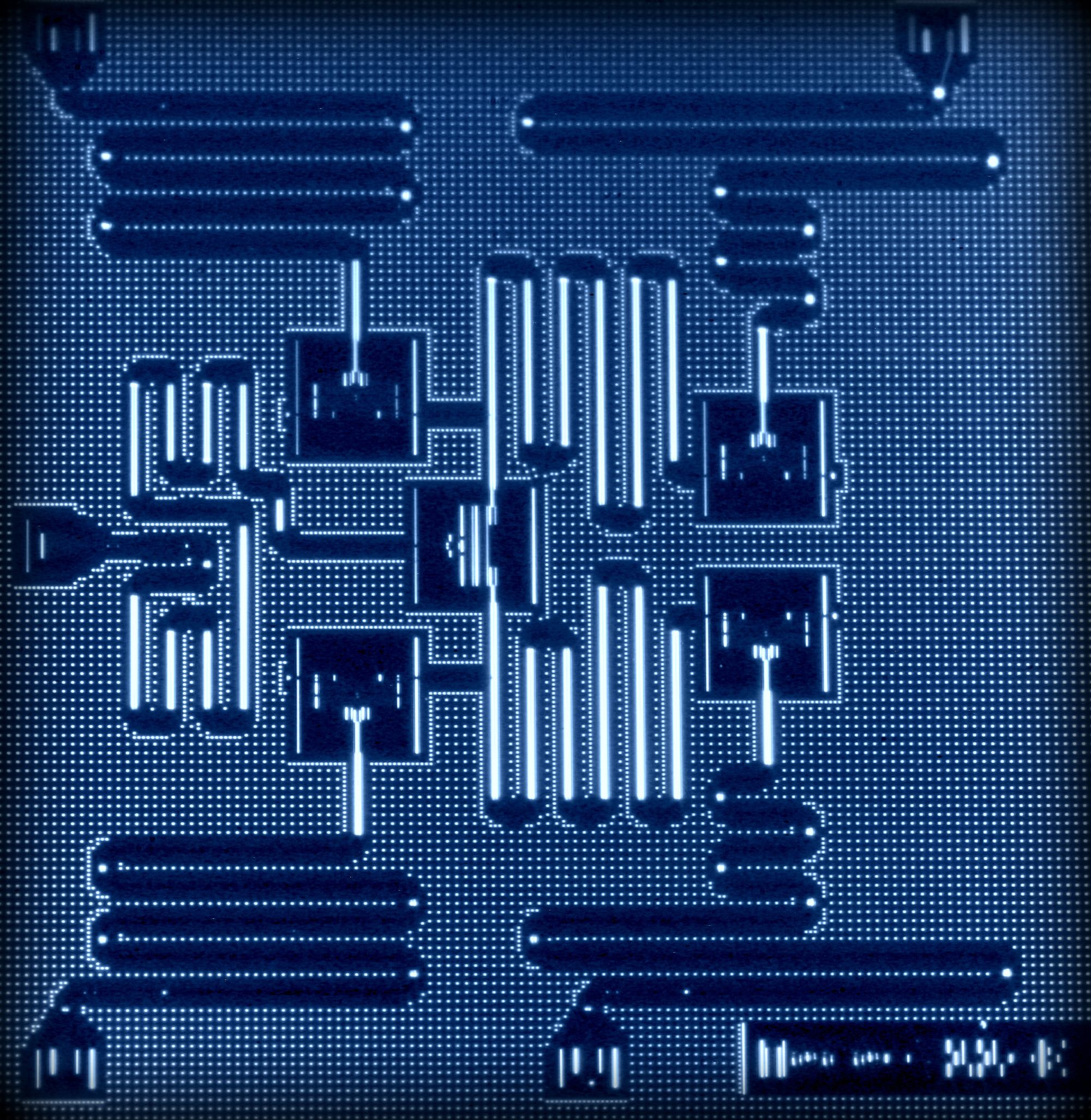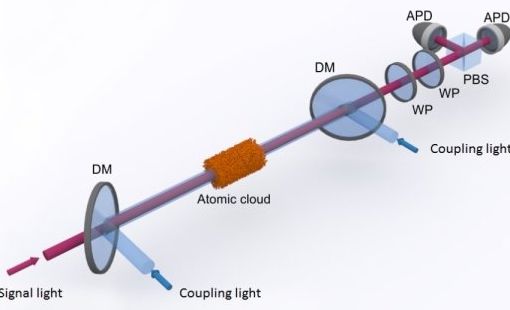Archive for the ‘quantum physics’ category: Page 808
May 4, 2016
What IBM’s new quantum processor means for the future of computing
Posted by Karen Hurst in categories: computing, genetics, quantum physics, robotics/AI
Here is the impact of today’s IBM QC announcement & if proven real then the following will certainly be fasttracked:
1. IBM is now ahead of everyone in QC
2. China & Russia are now going to heat up their own QC efforts.
Continue reading “What IBM’s new quantum processor means for the future of computing” »
May 4, 2016
Research Quantum Experience
Posted by Karen Hurst in categories: computing, information science, quantum physics
May 4, 2016
End of slow PCs? IBM creates super-fast quantum computer which brings AI closer
Posted by Karen Hurst in categories: climatology, computing, quantum physics, robotics/AI
I have already been trying to access; guess we will see.
ENGINEERS have created lightning-quick quantum computers which will be freely available to everyone to use online.
May 4, 2016
The Real Reasons Quantum Entanglement Doesn’t Allow Faster-Than-Light Communication
Posted by Karen Hurst in category: quantum physics
Orzell’s response to Siegel’s blog about breaking quantum entanglement and slowing down quantum communications — Orzell highlights some of the problems with Siegel’s statement about how quantum entanglement can be broken via two opposing states. The problem with Siegel’s statement is not with the breaking of entanglement slows down quantum communications; Orzell’s concern is with the details that Siegel describes in how it happens is the problem according to Orzell. Orzell highlights that the 2 state’s that Siegel shares as details to why and how the breakage occurs are not close enough by definition to make the argument valid because one is only a measurement while the other is the actual changing of state followed by a measurement.
Quantum entanglement is one of the weirdest and coolest phenomena in physics, but it’s absolutely not a method for sending messages faster than light, for subtle and complicated reasons.
May 4, 2016
IBM’s Quantum Experience brings quantum computing to the masses via the cloud
Posted by Karen Hurst in categories: computing, information science, quantum physics
Hmmm; my verdict is out for now because I haven’t seen anything showing me that IBM is a real player in this space.
IBM is bringing quantum computing to a device near you by delivering its IBM Quantum Experience through the IBM Cloud. The platform is part of IBM’s Research Frontiers Institute and could be a data scientist’s newest tool and a data junkie’s dream come true.
The platform is available on any desktop or mobile device. The tech allows users to “run algorithms and experiments on IBM’s quantum processor, work with the individual quantum bits (qubits), and explore tutorials and simulations around what might be possible with quantum computing,” the press release noted.
Continue reading “IBM’s Quantum Experience brings quantum computing to the masses via the cloud” »
May 4, 2016
IBM Quantum Computing To Accelerate Cloud Innovation
Posted by Karen Hurst in categories: quantum physics, supercomputing
Hmmm; my verdict is out for now.
IBM Quantum Computing Scientist Jay Gambetta uses a tablet to interact with the IBM Quantum Experience, the world’s first quantum computing platform delivered via the IBM Cloud at IBM’s T. J. Watson Research Center in Yorktown, NY.
On Wednesday, May 4, for the first time ever, IBM is making quantum computing available via the cloud to anyone interested in hands-on access to an IBM quantum processor, making it easier for researchers and the scientific community to accelerate innovations, and help discover new applications for this technology. This is the beginning of the quantum age of computing and the latest advance from IBM towards building a universal quantum computer. A universal quantum computer, once built, will represent one of the greatest milestones in the history of information technology and has the potential to solve certain problems we couldn’t solve, and will never be able to solve, with today’s classical computers. (Jon Simon/Feature Photo Service for IBM)
Continue reading “IBM Quantum Computing To Accelerate Cloud Innovation” »
May 4, 2016
IBM just added the first-ever quantum computing service to the internet
Posted by Shailesh Prasad in categories: computing, internet, quantum physics
May 3, 2016
IBM Inches Ahead of Google in Race for Quantum Computing Power
Posted by Klaus Baldauf in categories: computing, quantum physics
IBM believes it can demonstrate an experimental chip that will prove the power of quantum computers in just a few years.
May 3, 2016
Quantum logical operations realized with single photons
Posted by Karen Hurst in categories: computing, particle physics, quantum physics
More insights around the logical quantum gate for photons discovered by Max Planck Institute of Quantum Optics (MPQ). Being able to leverage this gate enables Qubits in transmission and processing can be more controlled and manipulated through this discovery, and places us closer to a stable Quantum Computing environment.
MPQ scientists take an important step towards a logical quantum gate for photons.
Scientists from all over the world are working on concepts for future quantum computers and their experimental realization. Commonly, a typical quantum computer is considered to be based on a network of quantum particles that serve for storing, encoding and processing quantum information. In analogy to the case of a classical computer a quantum logic gate that assigns output signals to input signals in a deterministic way would be an essential building block. A team around Dr. Stephan Dürr from the Quantum Dynamics Division of Prof. Gerhard Rempe at the Max Planck Institute of Quantum Optics has now demonstrated in an experiment how an important gate operation — the exchange of the binary bit values 0 and 1 — can be realized with single photons. A first light pulse containing one photon only is stored as an excitation in an ultracold cloud of about 100,000 rubidium atoms.


